This is adapted from a sermon delivered by UnitingWorld’s Rev Dr Ji Zhang in April 2017 after returning from the 15th General Assembly of GKI-TP in West Papua (-Ed).
Reading
Romans 8:1-2, 6-11
There is therefore now no condemnation for those who are in Christ Jesus. For the law of the Spirit of life in Christ Jesus has set you free from the law of sin and of death.
To set the mind on the flesh is death, but to set the mind on the Spirit is life and peace. For this reason the mind that is set on the flesh is hostile to God; it does not submit to God’s law—indeed it cannot, and those who are in the flesh cannot please God. But you are not in the flesh; you are in the Spirit, since the Spirit of God dwells in you. Anyone who does not have the Spirit of Christ does not belong to him.
But if Christ is in you, though the body is dead because of sin, the Spirit is life because of righteousness. If the Spirit of him who raised Jesus from the dead dwells in you, he who raised Christ from the dead will give life to your mortal bodies also through his Spirit that dwells in you.
Reflection
The Romans reading is a part last week’s lectionary. I have been avoiding this passage and preached on more “juicy” Gospel readings. After hearing a feminist critique of Christian theology’s treatment of the body, I could not look at the passage same again. This year, having traveled to Papua recently, I have a different insight.
The passage is a part of Paul’s debate of Law and Grace. The Law can be traced to the time of Moses. In the Old Testament books, human behavior and community organisation are defined and written down, and then passed on from generation to generation. In the New Testament, we know Jesus has simplified all laws down to two commandments: to love God, and to love neighbours.
We also know that Paul took the Gospel from Jerusalem all the way to the Romans. On this journey towards a new identity, he discovered a contradiction. Paul tells his Christian community there is a conflict between the flesh and the Spirit. The connecting point for today’s reading is in the early passage where Paul talks about his struggle. “I do not understand my own actions. For I do not do what I want, but I do the very thing I hate” (7:15). This is not just a problem for Paul, but also an existential struggle of all Christians.
By talking about his struggle, Paul names a common problem – “I do what I do not want” (7:17). Like Reinhold Niebuhr once said: Human beings are self-contradictory beings.
Recently I attended the 15th General Assembly of the Papuan Church. Our partner church GKI-TP gathered 5000 people from different parts of the church that has a membership of 1 million. I remember vividly a re-enactment of Gospel arriving in the land over 150 years ago. Church members dressed in traditional cloth to represent their past lives, practicing tribal law and using ‘black magic’ on their enemies. When the Gospel came, it appeared as light in the darkness; people took the old clothes off, and put on the new clothes – representing a new life in Christ.

However, the culture of tribal war still lingers. We see a similar situation in Papua New Guinea. People are always ready to go into battle, and use conflict to resolve difference. These conflicts always cost lives, but never bring peace.
The theme of the GKI-TP General Assembly was “May your kingdom come, on earth as well as in heaven”. After a courageous message from preacher Rev Dr Rumbwas, I spoke on the behalf of the UCA and made this point: “When we listen to God, we are able to listen to each other”.
Our partner church was in a time of major change. The spirit of God chooses this vulnerable time to reshape it. Despite imperfect nature of the process, the church has grown as it receives migrants; but in the transmigration program some of the newcomers have taken the lands and businesses of indigenous Papuans. The church has elected a new Synod leadership team, and by doing this the Assembly has turned a volatile leadership conflict, into and opportunity for peace – not just in the leadership, but in the culture of the whole church.
“You are not in the flesh; you are in the Spirit, since the Spirit of God dwells in you.” This passage is real in the life of Papuan church.
From this experience I read Paul’s writing again, and realise that Paul is doing contextual theology. We know his people believed in the Hellenistic worldview, the Body-Soul dualism. In the Neo-Platonic world, the physical is inferior whereas the spiritual is transcendental. Plato once described our desires are like horses pulling in different directions whereas the soul is like the charioteer who wants the wagon to move in one direction.
But here, two key words indicate Paul has different ideas: Kata sarka – meaning ‘after the flesh,’ and Kata pneuma – ‘after the Spirit’. Notice Paul did not use the word ‘psych’ i.e. “the Soul”, but the Spirit, which is the Spirit of God.
Is Paul accepting the Hellenistic thinking: the body bad, the spirit good? No. He is encouraging unity, not duality. By speaking the language of the Romans, he inserts two new ideas: Zwh – Zoe – meaning ‘life’, and Oikei – ‘making its home’. This is the same root word for World Council of Churches – which means ‘becoming a household.’
Paul further uses the word – ‘making its home’ – to stage his key argument about God. God’s life and peace are making home in our lives, more importantly making home in our bodily life. This is a new union between the flesh and the spirit. This indwelling nature of God speaks the beauty of Christian life. I have seen this partaking nature of God among our partners where the Spirit is transforming communities.
So, what does this mean for us today?
We struggle with many things. Yet God is graciously making home in our lives. It calls us not to go after the world of desire, instead to go after the Spirit of life and peace. Desire separates people, but peace unifies us across racial, national and religious divides.
In this season of Lent, we remember the recent Cyclone in QLD, the transition in the Papuan church, the famine in South Sudan, and the millions of people displaced by wars the Middle East. We also remember God is making home in the lives of these people. UnitingWorld’s Lent Event fundraising appeal supports our partners in Africa, India, PNG, and China. The way we support them is by showing how God of peace and justice is making home in the lives of the faithful.
The Church is the Body of Christ. The church is not just aiming for survival, but making an impact through witness and action. By working together we begin to understand Paul’s writing. “If the Spirit of him who raised Jesus from the dead dwells in you, he who raised Christ from the dead will give life to your mortal bodies also through his Spirit that dwells in you”.
May we live and act according to the Spirit this Easter.
And may we share the same hope of our partners in Papua:
“May your kingdom come, on earth as well as in heaven”.
Amen.
Rev Dr Ji Zhang
Manager of Church Partnerships, Asia
UnitingWorld
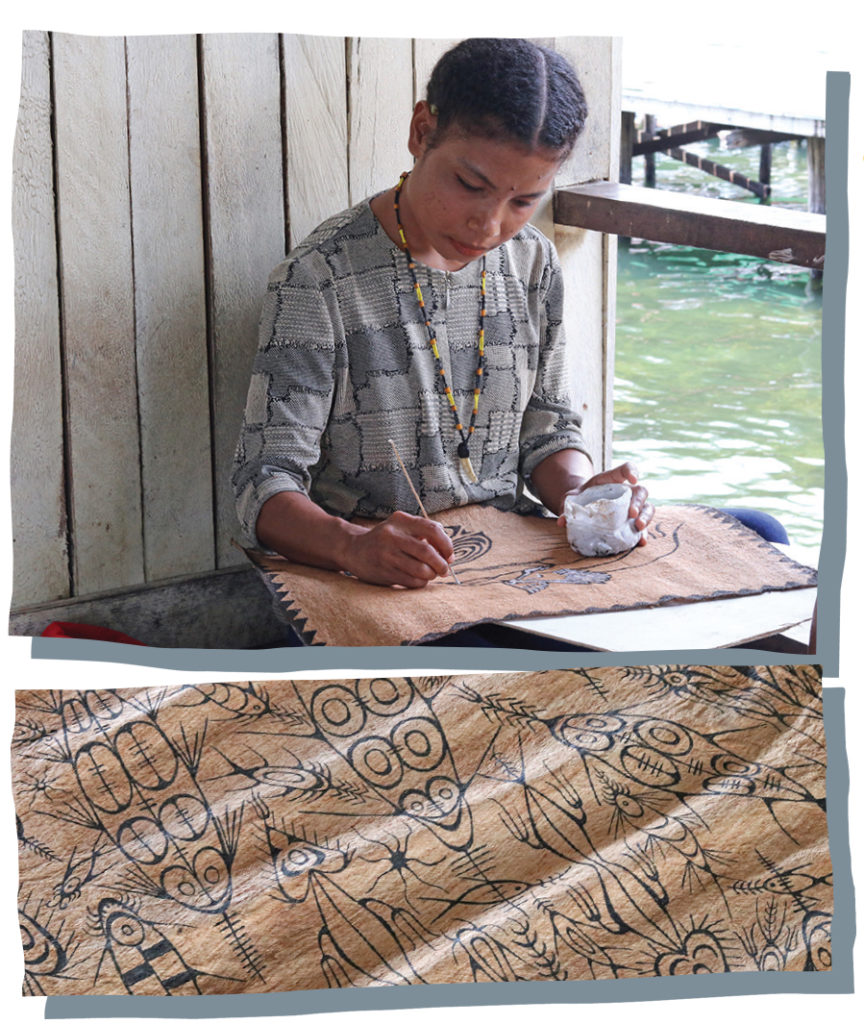 Traditional bark paintings (malo) have been produced by women from this area for hundreds of years. They spend weeks together making the canvases out of the beaten bark of fig trees, and then paint designs that express their culture, highlighting the theme of ‘harmony between all living things.’
Traditional bark paintings (malo) have been produced by women from this area for hundreds of years. They spend weeks together making the canvases out of the beaten bark of fig trees, and then paint designs that express their culture, highlighting the theme of ‘harmony between all living things.’
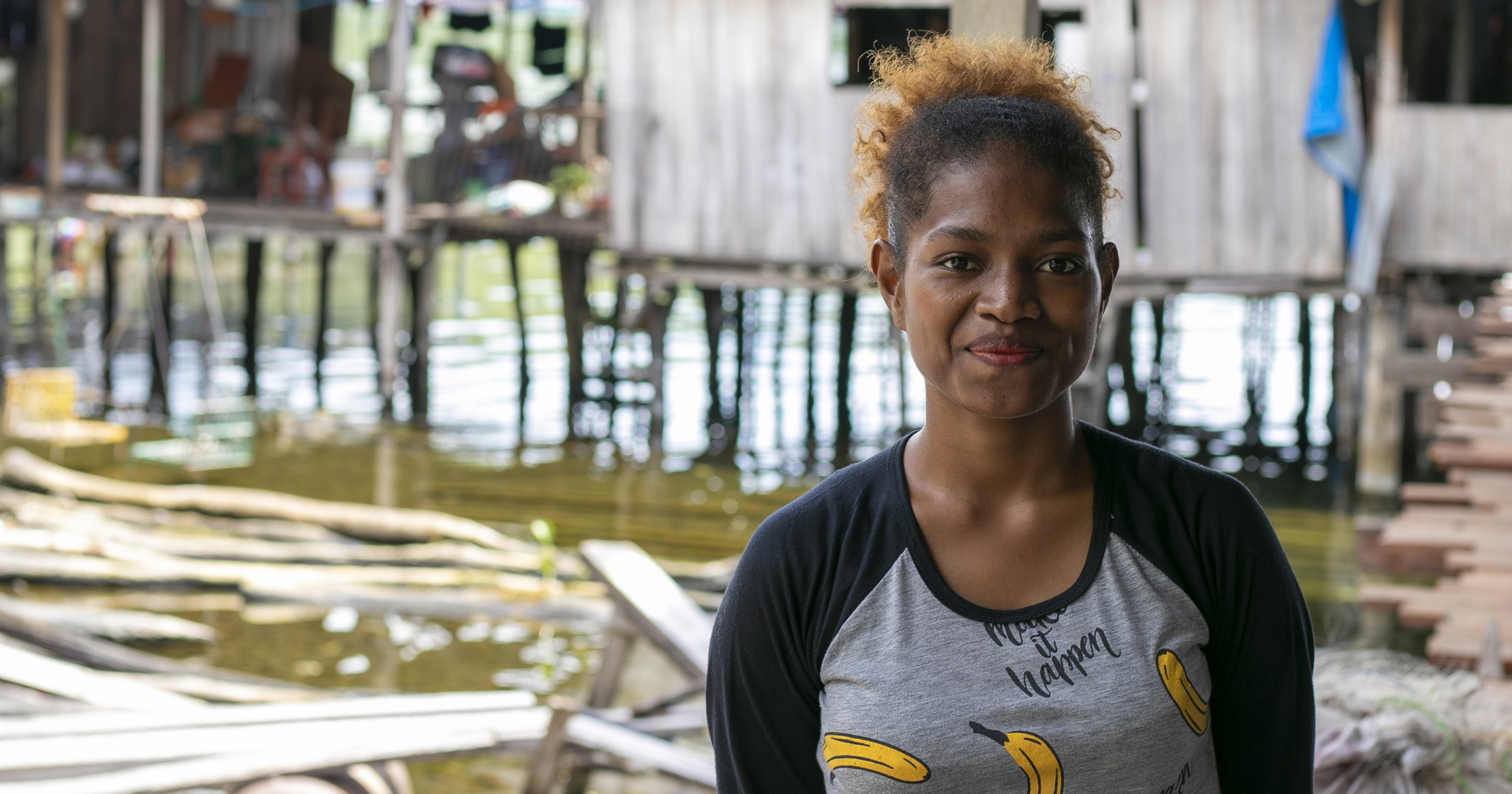
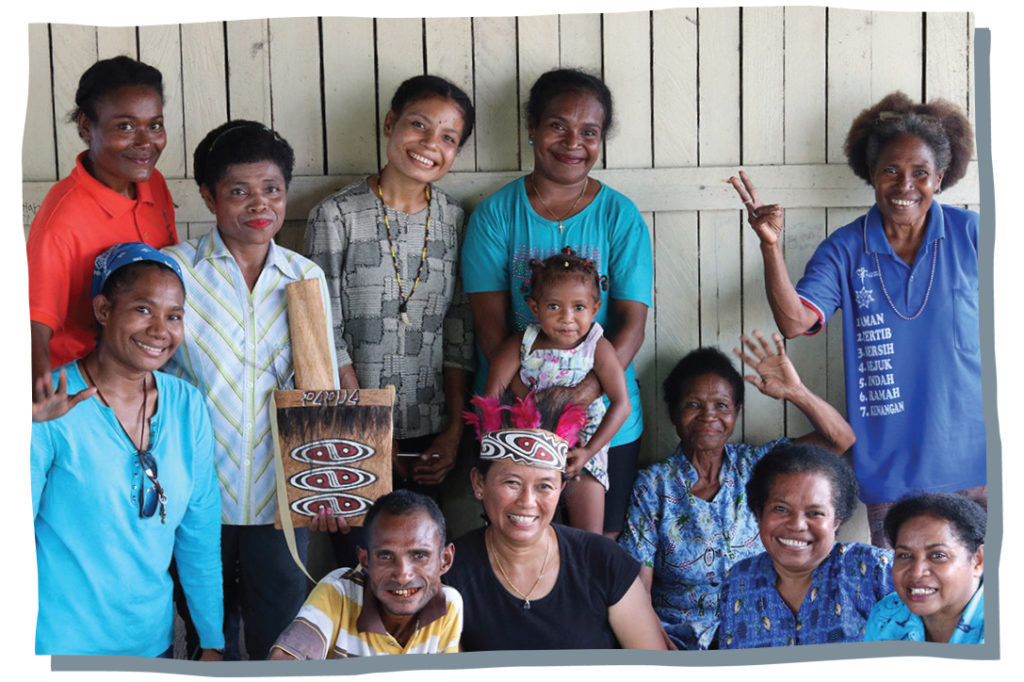
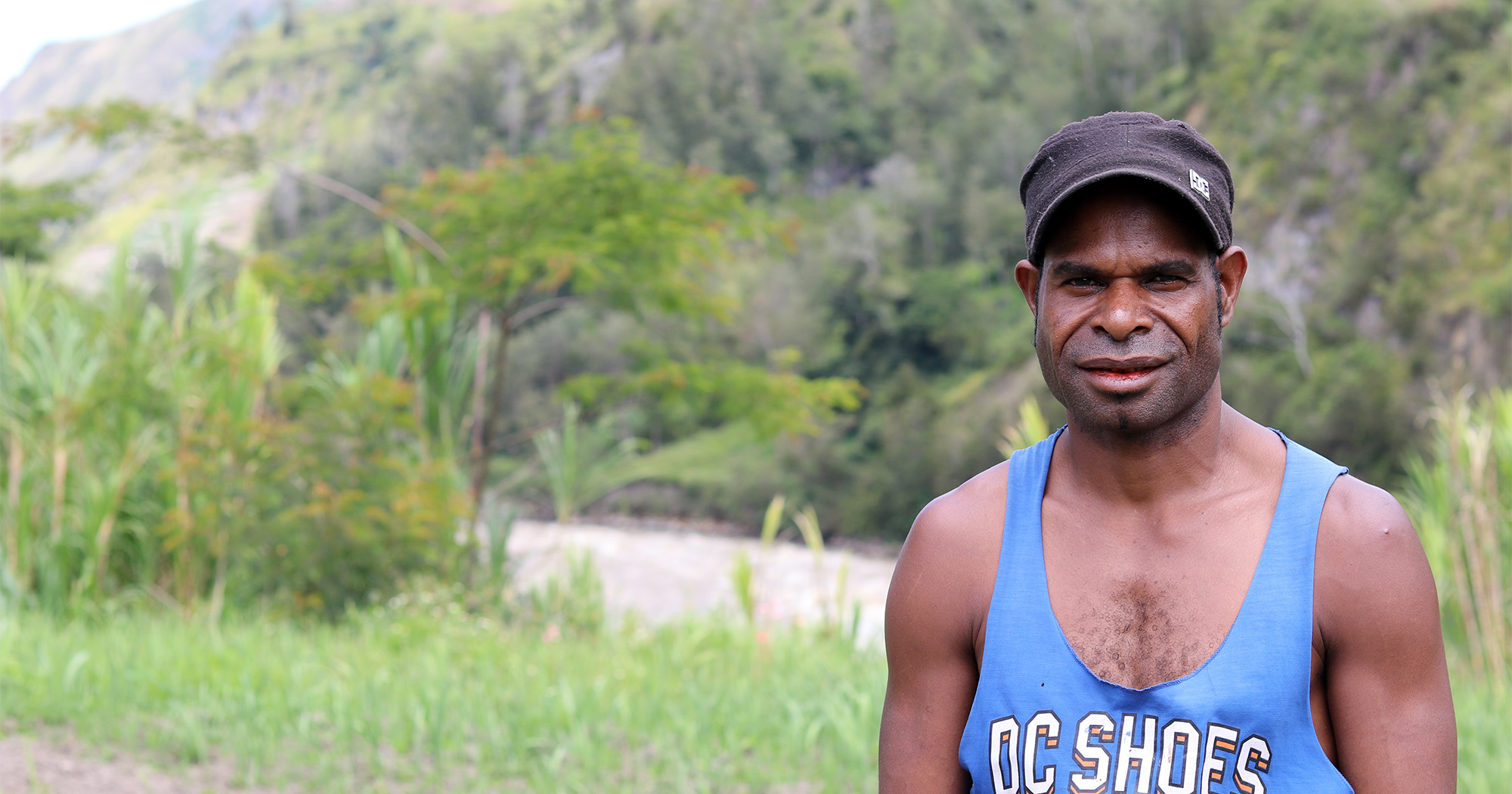



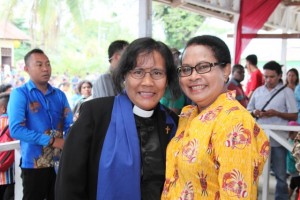
 “God sent me to Australia to continue the mission from Otto and Giesler to proclaim the Gospel in Australia. Now I return as a bridge between cultures and peoples. I belong to you and you are my people”. The crowd responded with loud acceptance.
“God sent me to Australia to continue the mission from Otto and Giesler to proclaim the Gospel in Australia. Now I return as a bridge between cultures and peoples. I belong to you and you are my people”. The crowd responded with loud acceptance.